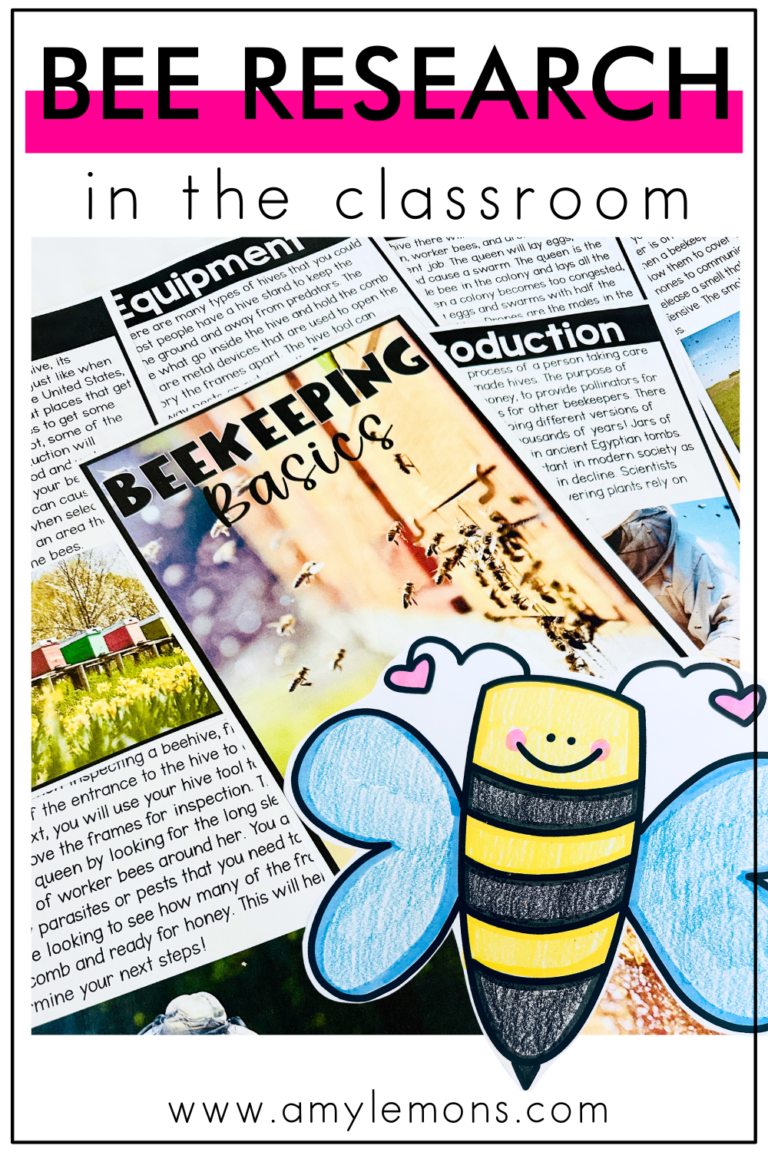
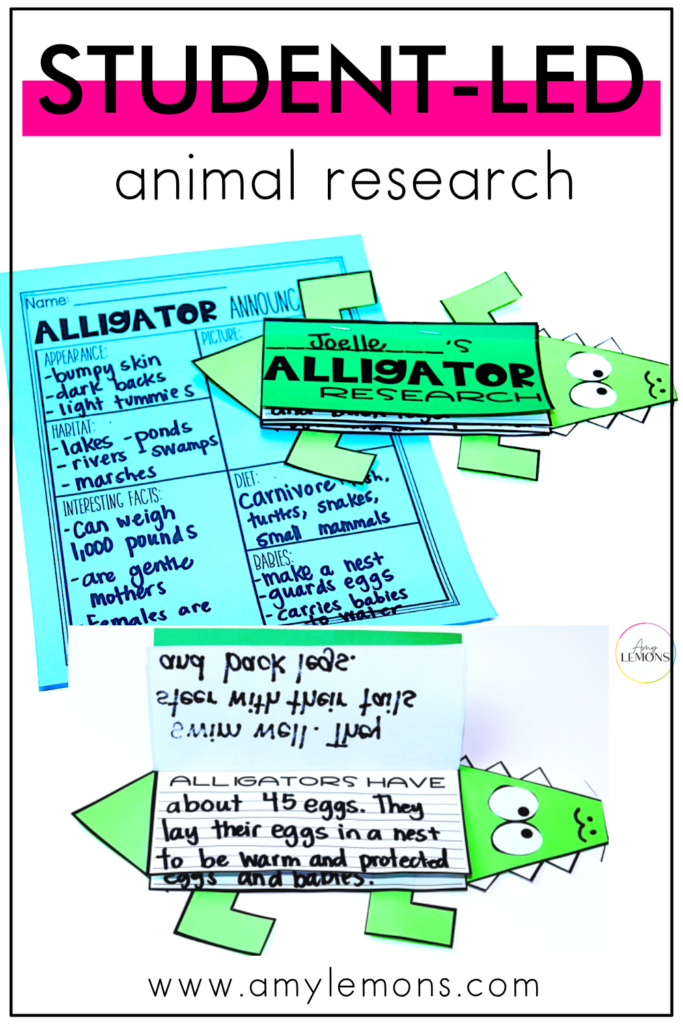
Conducting animal research with elementary students is one of the school year’s highlights. Typically, it occurs toward the end of the year making it the perfect wrap-up project. I’ve completed much animal research for kids over the years, but one of my favorites is an animal research project on Alligators versus Crocodiles!
Telling the difference between the two is always a fun conversation to have with kids because it can just be so tricky! You can use this animal research topic for an engaging animal study or a full science, reading, and writing unit.
For these research activities, I like to let the students lead the way all while incorporating other reading comprehension skills, including identifying facts versus opinions and true versus false.
Now, I’d like to share a look into how this is structured in the classroom. I’ll be using our Rooted in Reading research unit to demonstrate and you’ll have access to a FREEBIE below.
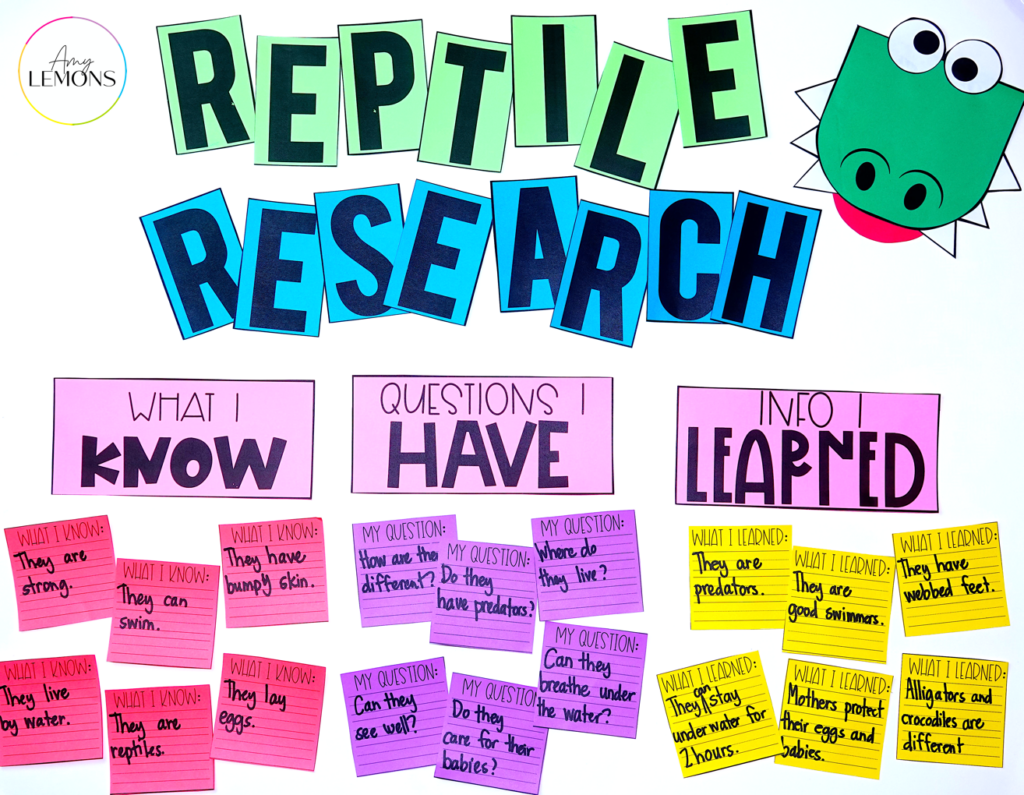
Using an anchor chart is literally to help anchor the lesson for the rest of the week. Before jumping into the research for alligators and crocodiles, start with a classroom discussion about reptiles and what students already know about alligators and crocodiles.
Find kid-friendly research links for students to browse and learn. You should begin by modeling for students how to use the research links to gather information about the animals they want to focus on.
At this point, you are showing students how to conduct research and begin to generate questions about what additional information they want to learn about the animals. You can jot down those questions on the anchor chart along with the details they already know.
You will continue to update the alligator versus crocodile research anchor chart throughout the lesson, circling back to add what students learned after they complete their animal research projects.
Now, it’s time to move on to gathering information.
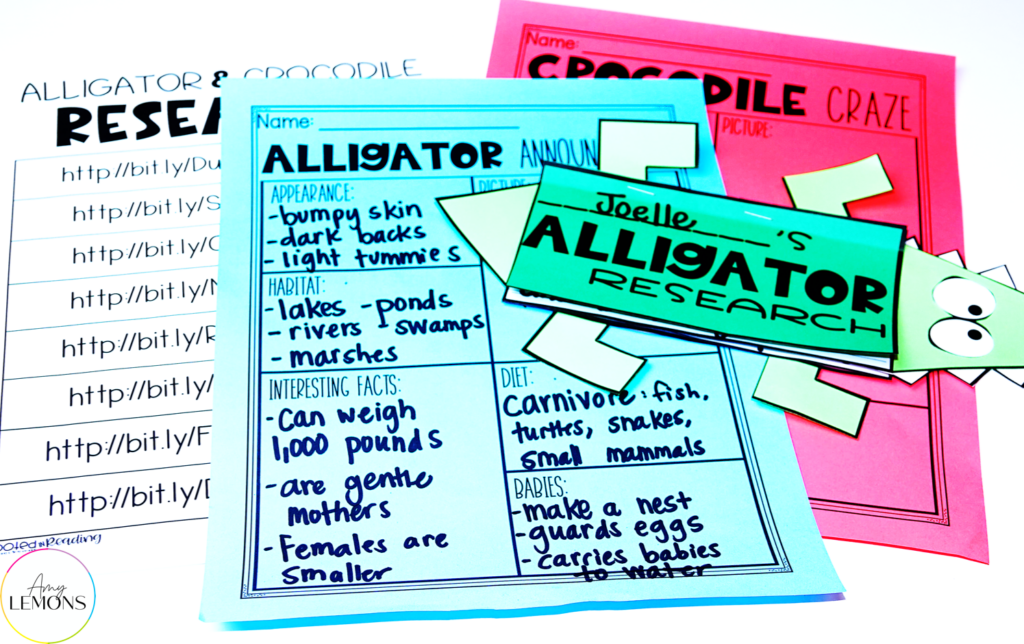
The next phase of the student’s animal research is to collect information and facts. Before you begin the lessons, take some time to gather kid-friendly research links for students to use to gather the details they need for their projects.
Here are a few websites I recommend for researching alligators and crocodiles.
Students can choose whether to research alligators or crocodiles. They can use the corresponding recording sheets to collect their facts, such as:
Have students jot down notes and details as they read. Later, they will be compiling all of their research into a research booklet! More on that later.
As students are conducting their animal research they will begin to come across various facts, thoughts, and opinions. This is an important point within the research study to help students understand the differences between fact and opinion and true and false.
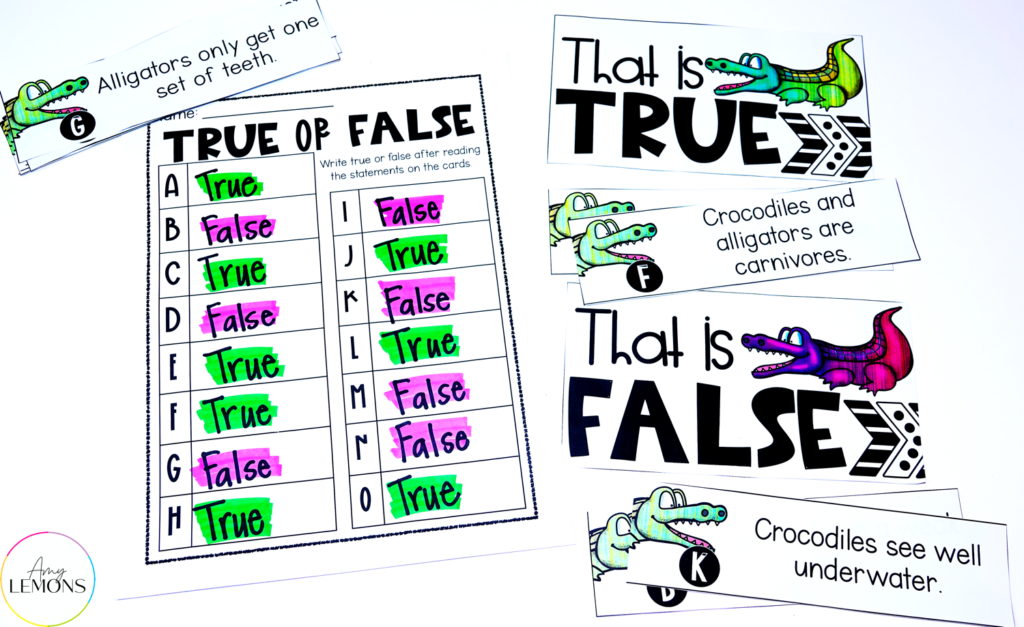
When students are jotting down their notes, it’s important students understand that they should only be writing down true statements. In order to do this, a mini-lesson on true vs. false statements will help them be able to identify the differences.
One way we help students differentiate is by using a true vs. false statement matching activity. You can complete this as a stand-alone activity or during a whole group lesson.
What you will do is grab a collection of sentence cards with details about alligators or crocodiles and have students go through them. They will use a recording sheet to determine whether the sentence is true or false.
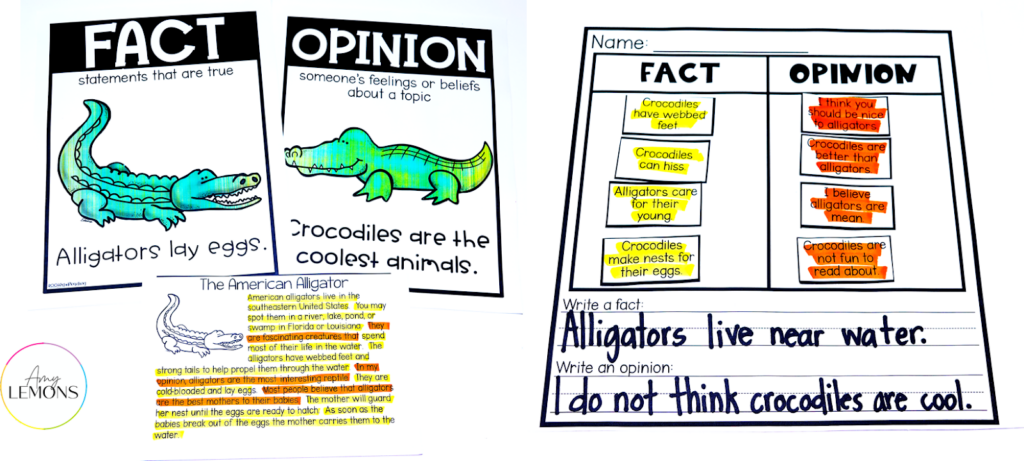
Similarly to the lesson on true vs. false, students will likely encounter some opinions as they are gathering information. So, differentiating facts from opinions is an important skill to review as students are researching.
Separating facts and opinions can be tricky, so this comprehension skill may require a bit more practice.
First, you should begin by defining each. You can use digital posters to anchor the lesson and have them on display so students can have a reminder of the differences. As a class, help to model and discuss each.
Then, you will want to complete some complementary activities that focus on identifying facts and opinions.
One way to do this is by having students highlight facts and opinions in a passage on the animal research topic. Using a short passage on American alligators, students can highlight facts and opinions throughout using two highlighters in different colors for each category. They can do something similar for crocodiles.
An additional fact versus opinion activity is a Fact and Opinion sort. For this activity, students will be given sentences and a recording sheet with columns for facts and opinions. They will then sort each sentence into the correct columns.
For additional practice, you can grab a FREE Fact vs. Opinion activity inside my post on May read-aloud suggestions!
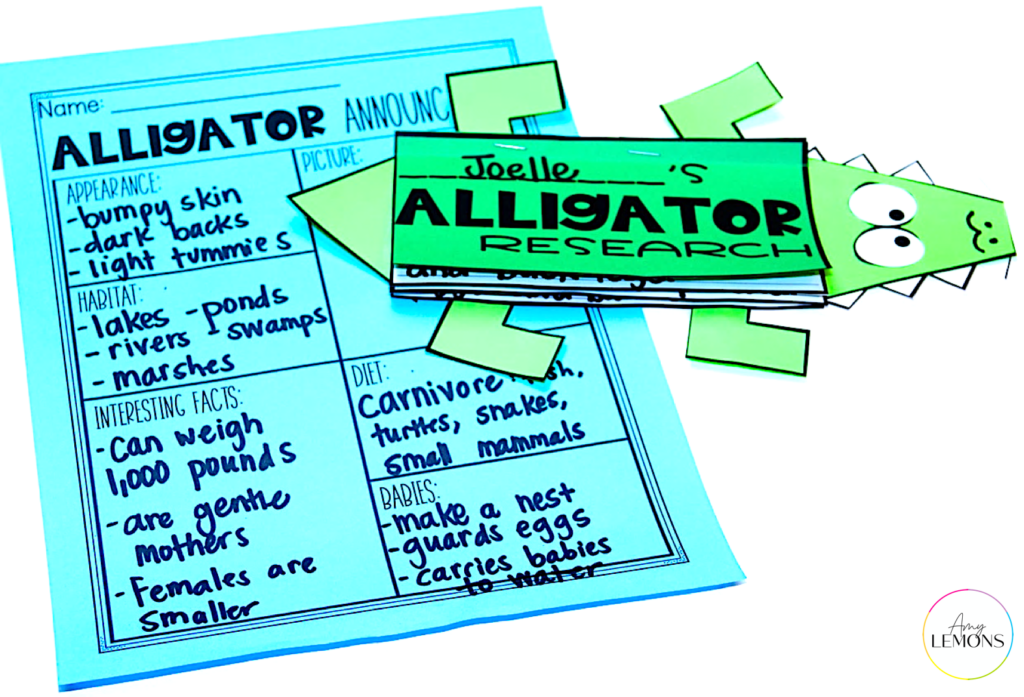
Taking all of the information they gathered during their research, making sure they are true and facts, students will craft a fun research booklet to showcase all of the details they’ve learned.
Students can create alligator or crocodile-shaped research booklets and inside the pages, they will write out the things they learned about those animals. Each page will have a fact about these ferocious reptiles!
If you’re conducting animal research with your students soon, consider this alligator versus crocodile research topic!
{All of the activities mentioned in this post are part of the research unit included in our 1st Grade Rooted in Reading May resource, a full month of reading comprehension lesson plans and activities.}


Hey, y’all! My name is Amy Lemons and I am passionate about providing students with both engaging and effective standards-based Math and ELA lessons.
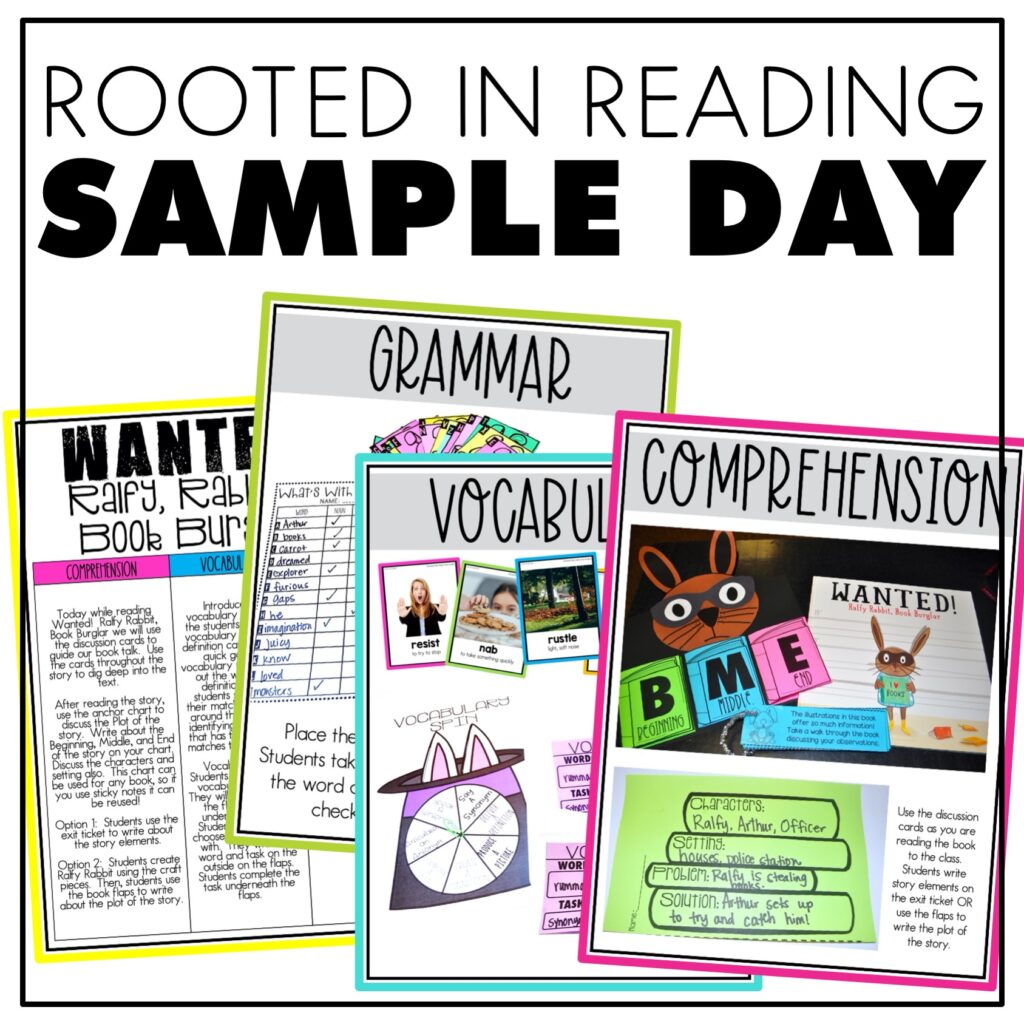
Sample a day of Rooted in Reading with these lesson plans and activities for Reading Comprehension, Vocabulary, and Grammar!


